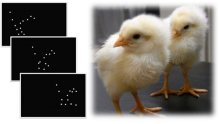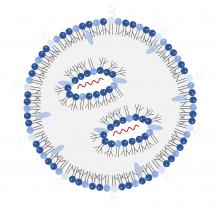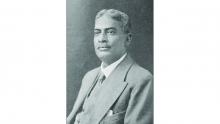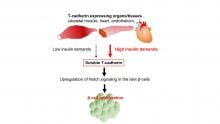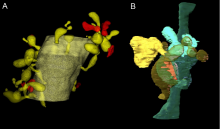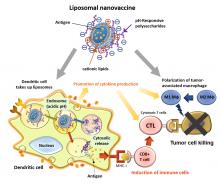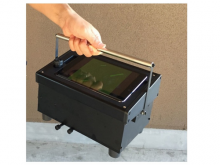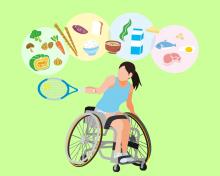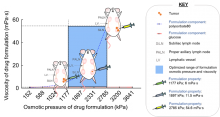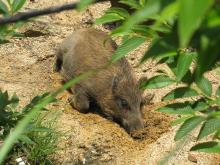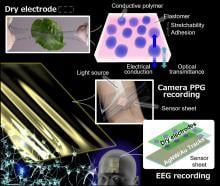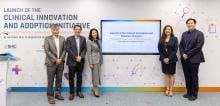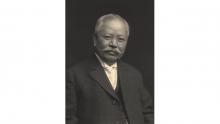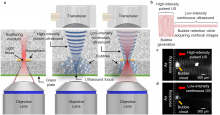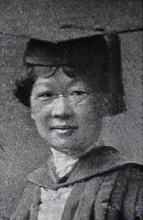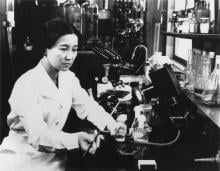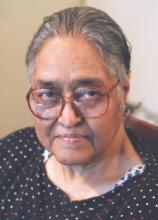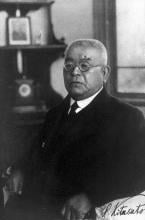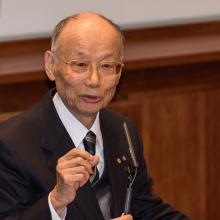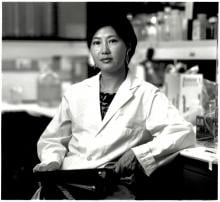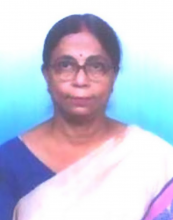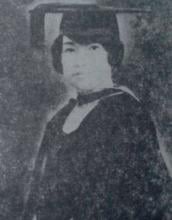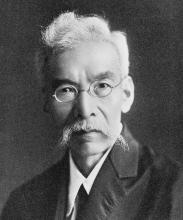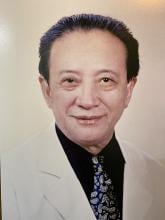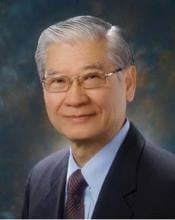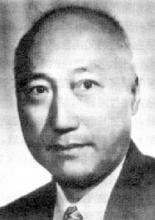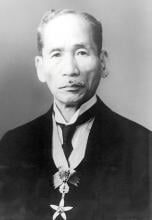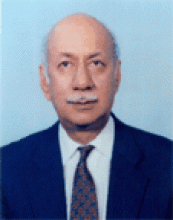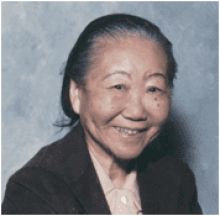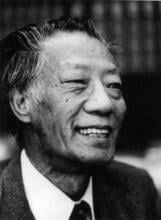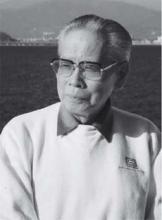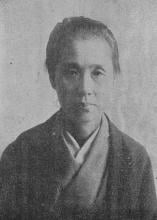Health
News
11 Nov 2022
Asia Research News monitors the latest research news in Asia. Some highlights that caught our attention this week are a bioinspired tiny jumping robot, evidence of gender stereotypes in young children, and the first sighting of a new species of crab.
10 Nov 2022
A novel branched lipid that has a high stability in storage and a high efficiency in the delivery of mRNA to cells has been developed.
10 Nov 2022
Giants in History: Indian scientist and physician Upendranath Brahmachari (19 December 1873–6 February 1946) is best known for creating a drug called Urea Stibamine, used to safely and reliably treat visceral leishmaniasis (or Kala-azar), a severe infection caused by the Leishmania parasite.
10 Nov 2022
Injury from falls lowers healthy life expectancy and quality of life, especially for older people. In Japan, patients discharged from acute care hospitals have higher incidences of falls. These falls occur more often indoors in places used frequently in daily life. A group of Osaka Metropolitan University researchers conducted a 6-month follow-up survey, after discharge from an acute care hospital, on falls and near-falls, of orthopedic disease patients with a fall history aged 65 or older. The results suggest that preventive intervention instructing patients using their home floor plans may help prevent falls during the early post-discharge period.
07 Nov 2022
Researchers led by Osaka University show that a molecule called T-cadherin can be secreted in a soluble form. Soluble T-cadherin interacts with pancreatic insulin-producing β cells via the Notch signaling pathway to promote their proliferation and increase the production of insulin. Recombinant T-cadherin stimulated Notch signaling in isolated mouse pancreatic islets, which contain β cells, indicating that T-cadherin may have therapeutic potential for diabetes.
07 Nov 2022
Focusing on the imperative of integrating science, policy and clinical practice to advance global One Health movement especially in the aftermath of COVID-19, the Congress will feature sharing by leading global scientists and policymakers on ways to address complex global health challenges.
04 Nov 2022
Research in Singapore confirms a link between tiny particulates in air pollution and sudden cardiac arrests in the general population.
04 Nov 2022
Asia Research News monitors the latest research news in Asia. Some highlights that caught our attention this week are jellyfish-like fossils, mythic diseases, and a transistor that can detect cancer cells.
02 Nov 2022
As our brains develop, cells within it ‘eat’ neuronal elements to clear out debris, pathogens and help improve efficiency. A recent study showed that motor learning in mice helped enhance the engulfing of synapses by Bergmann glial cells. The discovery could have possible implications for explaining why synaptic shrinkage and loss occur in depression, schizophrenia, and Alzheimer’s disease.
01 Nov 2022
Triple-negative breast cancer (TNBC) tumors gain immunosuppression and chemoresistance through interactions between interleukin 34 and myeloid-derived suppressor cells, researchers find.
31 Oct 2022
Call To Action urges G20 member countries and partners to mobilize adequate resources to close the TB funding gap and save lives.
31 Oct 2022
A research group at Osaka Metropolitan University has developed a drug delivery system that activates a strong cellular immune response to attack cancer cells, using one-tenth of the amount of antigen needed in the group’s previous work. By incorporating positively charged cationic lipids into liposomes and adding negatively charged pH-responsive polysaccharides to the surface, the research group increased the uptake efficiency of liposomes encapsulating cancer antigens by dendritic cells by approximately five times, which increased cytokine production by about 100 times. This increased M1-type macrophages, which activate cancer immunity, and decreased M2-type macrophages, which promote cancer growth.
26 Oct 2022
Asbestos is a toxic substance that is found in older buildings, as well as in cosmetics and products for children. As testing for its presence can be problematic, Hiroshima University Professor Akio Kuroda has been working on a novel solution.
26 Oct 2022
Leading global scientists and policymakers will exchange learnings to promote multi-sectoral
collaboration to address complex global health challenges
25 Oct 2022
Small neighboring galaxy filled with dark matter detected with gamma rays, How a virus induces heart inflammation, Shedding light on the happy hormone, Microfossils may hold key evolution clues. Read all in the October's Editor's Choice plus Upcoming event KNOWLEDGE MARKETPLACE – Bangkok 2022: Exchanging of ideas for a Democratic Myanmar.

24 Oct 2022
Investigations in Japan have uncovered some molecular mechanisms behind mitochondrial dysfunction in chronic heart failure.
21 Oct 2022
Asia Research News monitors the latest research news in Asia. Some highlights that caught our attention this week are scaling up production of a zombie fungus, the critical eye of female dogs, and enlightenment available on your smartphone.
20 Oct 2022
Osaka Metropolitan University researchers interviewed active para-athletes with lower-limb disabilities who compete at an international level, about diet and nutrition. The research team found that what para-athletes considered an ideal diet was not necessarily optimized for improving athletic performance, and even when para-athletes understood diets geared towards athletic performance, characteristics of their disabilities impose barriers to implementing dietary changes. Understanding these concerns and struggles is important for nutritionists who support para-athletes in sports nutrition.
19 Oct 2022
Osaka Metropolitan University researchers conducted a study of human mobility to find effective lifestyle changes that enable people to exist with the novel coronavirus COVID-19, while maintaining social and economic activities. They found that restricting the human mobility in specific areas according to the state of the pandemic, rather than uniformly controlling human mobility, could be effective in reducing the number of new COVID-19 infections.
19 Oct 2022
When a cancer spreads, the invasion of tumor cells into the lymph nodes present various barriers to effective treatment. Harnessing a lymphatic drug delivery system, where drugs are injected directly into sentinel lymph nodes under ultrasound guidance, a collaborative research group has developed a novel drug formulation that enhances the therapeutic response of carboplatin, a commonly used chemotherapy medication.
18 Oct 2022
Researchers develop a ground-breaking model to estimate bait vaccination effectiveness in wild animals based on the proportion of immunized animals in a population and the number of vaccine applications.
17 Oct 2022
Good hand hygiene has been found to be an effective way to prevent the spread of infectious organisms and the most important defence against disease, but studies have shown that many parents have inadequate knowledge, reporting skills, and parenting practices related to seasonal influenza. Previous research has shown a positive relationship between parents’ and children’s health practices. The research by Dr Peggy Or Pui-lai, Assistant Professor at the Department of Health and Physical Education, The Education University of Hong Kong, investigated whether there was any correlation between flu infection among parents and their kindergarten-age children, and the effectiveness of using hand hygiene interventions in kindergartens to lower kindergarten children’s absenteeism attributable to seasonal flu.
17 Oct 2022
Researchers from Osaka University have developed a skin-like device to measure brain activity via electroencephalography, which uses electrodes to measure electrical activity on the scalp (reflecting underlying brain activity). The device has other useful applications, such as measuring heart rate and blood oxygen levels. Wearable devices that can remotely assess brain health in everyday settings are likely to improve healthcare for millions of people worldwide.
17 Oct 2022
The National Health Innovation Centre, Singapore (NHIC) has launched a Clinical Innovation and Adoption Initiative to nurture promising healthtech projects for adoption and scaling across healthcare clusters in Singapore.
17 Oct 2022
The Malaysia Technology Expo (MTE) 2022: SDG International Innovation Awards & Expo (SDGIIAE) returns for its 2nd edition and the awards encourage the development of innovative solutions for local and global challenges.
13 Oct 2022
Giants in History: Japanese chemist Takamine Jokichi (3 November 1854 – 22 July 1922) founded the Tokyo Artificial Fertilizer Company, where he isolated a starch-digesting enzyme (named takadiastase) from the fungus Aspergillus oryzae.

11 Oct 2022
Vaccines have become the most important weapon in the fight against the COVID-19 pandemic, but antibody levels after vaccination decay quickly over time. Therefore, an accurate and affordable antibody rapid test is urgently needed to adjust the revaccination strategy. A research team led by City University of Hong Kong (CityU) recently invented an accurate rapid-testing device that can quantify and display the antibody level as a length of a visual bar, like a mercury thermometer, in as few as 20 minutes, enabling convenient mass screening or individual monitoring of immune protection against COVID-19.
07 Oct 2022
- DGIST Professor Jin Ho Chang and Jae Youn Hwang's joint research team revealed for the first time in the world that the depth focused light can be increased by using a bubble layer temporarily created using ultrasound.
- The collaborative research of ultrasound and optical imaging experts is expected to overcome the physical limitations of optical imaging and treatment depth.
07 Oct 2022
Researchers from Hokkaido University and Toppan have developed a method to detect build-up of amyloid β in the brain, a characteristic of Alzheimer’s disease, from biomarkers in blood samples.
Events
Sorry, no events coming up for this topic.
Researchers
Sorry, no researchers coming up for this topic.
- « first
- ‹ previous
- 1
- 2
- 3
- 4
Giants in history
Vietnamese surgeon Tôn Thất Tùng (10 May 1912 – 7 May 1982) developed a pioneering technique that reduced the risks and mortality rate of liver operations.
Chinese biochemist Chi Che Wang (1894 - 1979), one of the first Chinese women to study abroad, advanced to prominent research positions at American institutions including the University of Chicago and the Northwestern University Medical School.
Ruby Sakae Hirose (1904 – 1960) was a Japanese-American scientist whose research contributed significantly to our understanding of blood clotting, allergies and cancer.
Flora Zaibun Majid ( 1939–2018) was an accomplished Bangladeshi researcher in botany and nutrition science and the first female chairperson of the Bangladesh Council of Scientific and Industrial Research.
Iranian physician and bacteriologist Azar Andami (8 December 1926 – 19 August 1984) developed a cholera vaccine to combat an outbreak that swept through the Middle East, India, Southeast Asia, and Africa in 1937.
Irene Ayako Uchida’s (8 April 1917 – 30 July 2013) strides to understand genetic diseases such as Down syndrome paved the way for early screening of chromosomal abnormalities in foetuses.
Baron Kitasato Shibasaburo (29 January 1856 – 13 June 1931) was a Japanese physician and bacteriologist whose work led to a new understanding of preventing and treating tetanus, diphtheria and anthrax.
Maggie Lim (5 January 1913 – November 1995) was a Singaporean physician who promoted family planning and expanded the access to clinics to improve the quality of life for mothers and children in Singapore’s early days.
By isolating soil microorganisms and studying the compounds they produce, Satoshi Omura (born 1935) discovered almost 500 organic compounds with unique properties that were produced by these microorganisms, including many new antibiotics.
The founder of the Adyar Cancer Institute in India, Muthulakshmi Reddy (30 July 1886 – 22 July 1968), fought to uplift women and girls from impoverished situations.
Chinese-American virologist and molecular biologist Flossie Wong-Staal (27 August 1946 – 8 July 2020) was the first scientist to clone HIV and determine the function of its genes.
Maharani Chakravorty (1937 – 2015) was one of India’s earliest molecular biologists whose research paved the way for advances in the treatment of bacterial and viral infections.
Archana Sharma (16 February 1932 - 14 January 2008) conducted research into plant and human genetics that expanded the understanding of both botany and human health. In relation to botany, she uncovered the means by which asexually-reproducing plants evolve into new species.
The first Thai woman to receive a degree in medicine, Margaret Lin Xavier (29 May 1898 – 6 December 1932), is best remembered for her compassion towards her less privileged patients.
In 1915, pathologist Katsusaburo Yamagiwa and his research assistant Koichi Ichikawa became the first to prove that chronic exposure to chemicals can cause cancer.
Filipino chemist and pharmacist Manuel A. Zamora (29 March 1870 – 9 July 1929) is best remembered for his discovery of the tiki-tiki formula to combat beriberi, a disease caused by Vitamin B1 deficiency.
After witnessing death and suffering as a youth in his home village during World War II, Nguyễn Tài Thu (6 April 1931 – 14 February 2021) set his sights on alleviating pain by becoming a doctor. After studying Traditional Chinese Medicine in China in the 1950s, Thu returned to Vietnam to serve in military hospitals. Eventually, he became the country’s foremost practitioner of acupuncture, a technique he first learned by inserting needles into himself.
David T. Wong (born 1936) is a Hong Kong-born American neuroscientist who is best known for discovering the antidepressant drug fluoxetine, better known as Prozac.
Indian organic chemist Asima Chatterjee (1917 to 2006) studied the medicinal properties of plant products, especially compounds known as vinca alkaloids.
Hsien Wu (24 November 1893 – 8 August 1959) is widely regarded as the founder of biochemistry and nutrition science in China. He was the first to propose that protein denaturation was caused by the unfolding of the protein, instead of chemical alteration.
Umetaro Suzuki (7 April 1874 – 20 September 1943) was a Japanese scientist best remembered for his research on beriberi, a disease caused by vitamin B1 deficiency, characterized by limb stiffness, paralysis and pain.
Syed Qasim Mehdi (13 February 1941 – 28 September 2016) was a Pakistani molecular biologist who was a founding member of the Human Genome Diversity Project (HGDP), which assessed human diversity by studying human migration, mutation rates, relationships between different populations, genes involved in height and selective pressure.
Tsai-Fan Yu (1911 – 2 March 2007) was a Chinese-American physician and researcher who was the first female full professor at Mount Sinai School of Medicine. She discovered that gout, a condition characterized by the painful inflammation of joints, was caused by elevated levels of uric acid in the bloodstream.
Min Chueh Chang (10 October 1908 – 5 June 1991) was a Chinese-American biologist who studied fertilization in mammalian reproduction.
A Japanese surgeon, Tetsuzo Akutsu (20 August 1922 – 9 August 2007) built the first artificial heart capable of keeping an animal alive.
Ogino Ginko (3 March 1851 – 23 June 1913) was the first registered female doctor to practise modern medicine in Japan.


